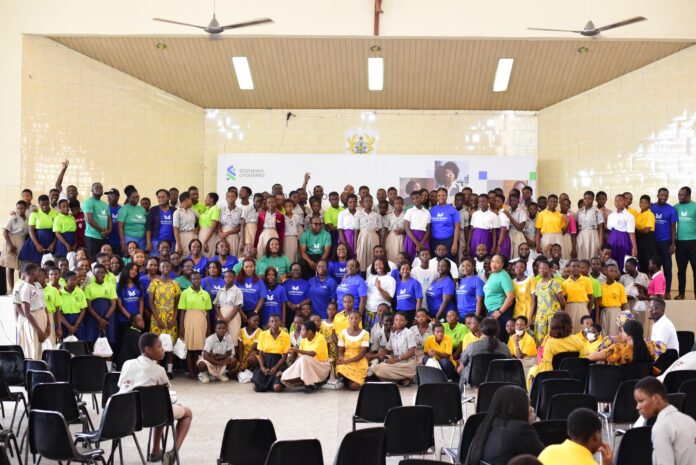|
Getting your Trinity Audio player ready...
|
At Standard Chartered our unique diversity is our superpower and drives our purpose and business success. Our long-term goal is to increase gender equality by Lifting Participation of women in the economy – unleashing the financial potential of women and small businesses. The Bank provides holistic support to women at various stages through different initiatives, actively promoting gender equality within its workplace, communities and clients fostering a culture of inclusion and opportunity.
Through the bank’s employee volunteering programme, staff joined 350 teenage girls from the Nima Cluster of Schools and St. Kizito Basic School to mark International Women’s Day, a day dedicated to honouring the achievements and contributions of women. The engagement session commenced with some of the staff sharing their inspiring personal stories and experiences when they were teenagers and how they surmounted the challenges they faced. The staff volunteered their skills in a speed mentoring session, providing valuable guidance, support, encouragement and inspiring stories to the adolescents, helping them navigate challenges, set goals, and realize their full potential.
This volunteering initiative is focused on women’s empowerment, demonstrating a genuine commitment to creating positive societal change and investing in women to accelerate growth.
It is particularly meaningful to empower young women and inspire them to dream big on days such as International Women’s Day. The Bank does not only help women achieve their personal and professional aspirations but also contributes to the creation of a more equitable and prosperous world.
Standard Chartered has initiatives for women at various levels, adolescents, youth, female start-ups to mention a few. The Bank does not only work with adolescent girls on such special days. One such initiative is the Goal programme that uses sports to build life skills in adolescent girls for the future. More than 12,000 young girls have benefited from this programme over the past 6 years in the Eastern and Greater Accra Regions.





